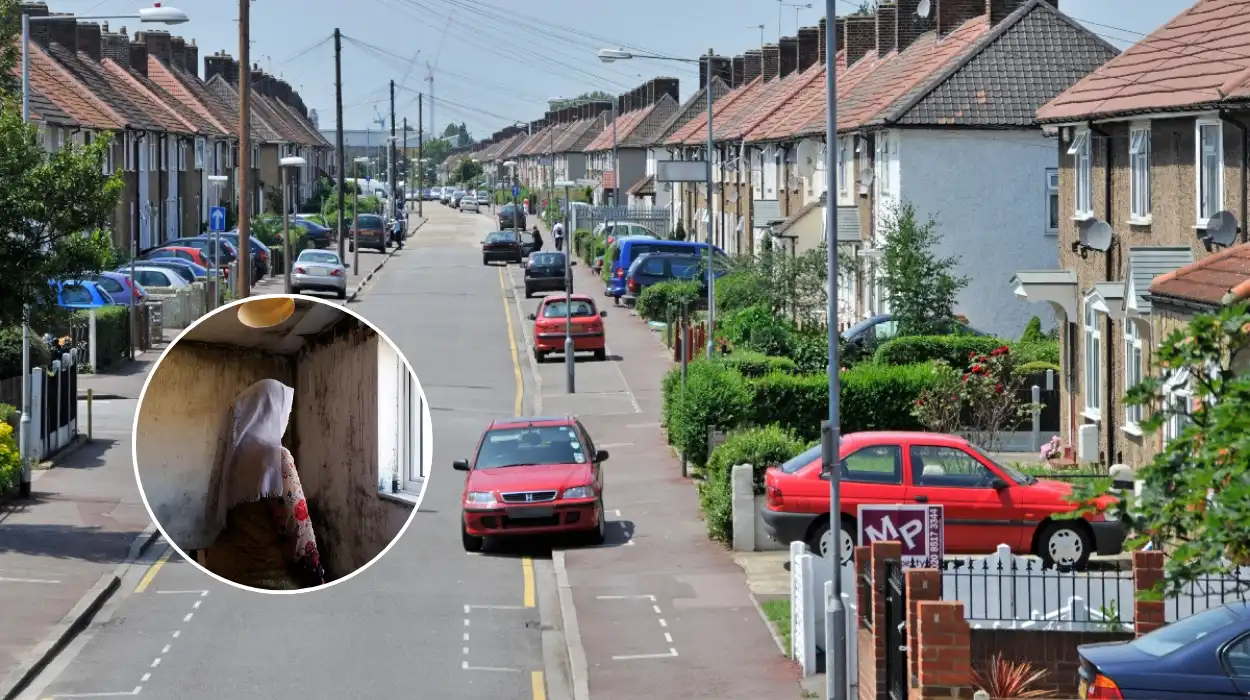Key Points
- Local authorities and campaigners are urging UK government to increase financial support for families living in temporary accommodation in East London, particularly in boroughs such as Tower Hamlets, Hackney, Newham, Redbridge, and Havering.
- Rising accommodation costs and a surge in homelessness have severely strained local councils’ budgets.
- Families report overcrowding, poor conditions, and significant hardship while waiting for permanent housing.
- Local government leaders argue central funding is inadequate and fails to reflect the scale of the East London housing crisis.
- Charities and advocacy groups highlight impacts on children’s education, health, and wellbeing due to prolonged stays in unsuitable housing.
- Government representatives have promised ‘ongoing reviews’ but stopped short of committing to immediate funding increases.
- The issue has gained national attention following recent high-profile cases in boroughs including Hackney and Newham.
- Statistical data from government reports shows temporary accommodation use in East London is rising sharply year-on-year.
- Public opinion polls reveal strong support for increased funding and long-term housing solutions.
Inverted Pyramid Structure – Most Important to Least Important Information
- Key Points
- What is Fuelling Calls for More Funding for Families in East London Temporary Accommodation?
- Why Are Families Placed in Temporary Accommodation in East London?
- How Are Families Affected by Living in Temporary Accommodation?
- What Are Local Authorities and Campaigners Demanding From the Government?
- How Has the Government Responded to These Pleas For More Cash?
- Where is the Most Severe Pressure Being Felt?
- What Are the Wider Social and Economic Consequences?
- How Are Community Groups and Residents Responding?
- What Could the Future Hold for Families Reliant on Temporary Accommodation?
What is Fuelling Calls for More Funding for Families in East London Temporary Accommodation?
A coordinated plea has been made by East London local authorities, charities, and affected families for greater government support to tackle what is widely recognised as a worsening temporary accommodation crisis in boroughs such as Tower Hamlets, Hackney, Newham, Redbridge, and Havering. The call comes amid a dramatic rise in the number of families forced into temporary housing, spiralling costs, and stark warnings about long-term wellbeing impacts on hundreds of vulnerable children and their parents.
As reported by the editorial team at YouGov News Tracker, the cost and prevalence of temporary accommodation in East London have featured heavily in national discussions this week, overshadowing many other social policy issues. Local government sources confirmed spikes in demand since last winter, with some councils now spending millions more than a decade ago just to keep families off the streets.
Why Are Families Placed in Temporary Accommodation in East London?
According to the editorial analysis published by HotTopics, the current crisis has roots in a combination of private sector rent inflation, slow social housing development, welfare reform policies, and the termination of private tenancies at an increasing rate. East London has witnessed some of the capital’s sharpest rent rises, pushing low-income families beyond their means and into council-provided hotels, hostels, and other makeshift housing.
As per charity officers working with local councils, the supply of genuinely affordable permanent homes has failed to keep pace with growing demand.
“The shortage of appropriate housing stock means families can be stuck in limbo for months or even years,”
stated a spokesperson for Shelter UK, as referenced in multiple local interviews.
How Are Families Affected by Living in Temporary Accommodation?
As reported by the team at YouGov, repeated surveys and interviews with families in Tower Hamlets, Hackney, and Newham indicate a
“pattern of severe overcrowding, unsafe conditions, and long-term stress among housed families”.
Parents have described conditions to journalists as “intolerable for growing children” and “utterly unsuited to long-term living”, citing issues such as shared kitchens and bathrooms, lack of outdoor space, noise, and insecure tenancies.
Numerous parents informed journalists that their children’s education was being disrupted by frequent moves and lack of quiet study space. Community health advocates have also raised concerns over “markedly higher” rates of asthma and anxiety disorders among children in temporary accommodation as compared to permanent social housing residents.
What Are Local Authorities and Campaigners Demanding From the Government?
Local government leaders, including Cllr Asma Begum of Tower Hamlets and Cllr Kam Rai of Newham, are publicly demanding “an urgent and substantial increase in central government grants for temporary accommodation services” and targeted investment in permanent social housing. As highlighted by the editorial team at HotTopics, councils face a “substantial funding gap” and are forced to make
“difficult choices between funding emergency accommodation and maintaining core public services”.
Charities want reforms to housing benefit caps, increased funding for housing acquisition schemes, and a long-term cross-party approach to regional housing supply. According to Shelter, addressing child poverty and poor public health outcomes is impossible without “securing families in safe, permanent homes”.
How Has the Government Responded to These Pleas For More Cash?
As reported by YouGov News Tracker, government officials including Housing Minister Sarah Dines have said the funding allocation process is “being kept under continual review”. Dines, in comments relayed by YouGov, stated:
“We are working closely with local authorities to ensure families at risk of homelessness receive support. While budgets are significant and rising, we recognise the need for ongoing collaboration to address this complex challenge”.
However, neither the Department for Levelling Up, Housing and Communities nor HM Treasury has so far announced fresh, ring-fenced funds for temporary accommodation in East London. Government spokespeople continue to stress recent increases in national homelessness prevention grants, but leaders locally argue that these do not match the scale of the capital’s crisis.
Where is the Most Severe Pressure Being Felt?
The highest levels of need have been reported in Hackney, Newham, and Tower Hamlets, according to analysis by multiple news organisations, including HotTopics and local London news teams. Hackney Council, for example, is currently accommodating over 1,500 households in temporary accommodation, a number described by council chief executive Tim Shields as “unprecedented in the modern era”.
Cllr Kam Rai of Newham noted that,
“Despite our best efforts, the number of families needing emergency support is surging, and we have run out of ways to plug the budget shortfall without decisive national intervention.”
The local authority has had to allocate millions of pounds in emergency reserves to cover a funding gap, with repeated warnings that such measures are unsustainable.
What Are the Wider Social and Economic Consequences?
Research published by leading charities and cited by national news sources consistently links prolonged stays in temporary accommodation to negative educational, social, and health outcomes for children and young people. NHS data locally shows a spike in general practitioner (GP) visits for anxiety and respiratory illnesses among children based in council temporary housing, and teachers’ groups have flagged sharply rising rates of absenteeism and underachievement among pupils housed in non-permanent addresses.
According to data released by HotTopics, national polls show strong public support for significant government action on temporary accommodation funding and more ambitious long-term housing plans. Property market analysts warn that without further intervention, additional price rises in the private sector will “almost certainly” exacerbate pressures on East London councils.
How Are Community Groups and Residents Responding?
A series of campaign events and petitions have been launched in Hackney and Tower Hamlets by parent advocacy groups, with families sharing detailed testimonies with national media and through local public forums. As quoted in the YouGov News Tracker report,
“There is overwhelming community consensus supporting immediate action and greater funding for councils to provide dignified, secure accommodation for all families in need”.
Community leaders argue that the temporary nature of the current solutions is creating a “vicious cycle”, with children’s futures “being compromised by government inaction”.
What Could the Future Hold for Families Reliant on Temporary Accommodation?
While central government maintains that funding is under review and that homelessness prevention remains a stated priority, local authority leaders, campaigners, and affected families are unanimous that
“only a substantial new injection of funds and new-build social rental homes”
will bring the East London crisis under control. In the interim, families in boroughs such as Hackney, Newham, Redbridge, and Tower Hamlets face the prospect of continued hardship, financial struggle, and uncertainty.
With multiple recent high-profile cases shining a bright spotlight on the human cost of policy inertia, the pressure for Westminster action is mounting. As the editorial team at HotTopics summarises, “The scale and urgency of East London’s temporary accommodation crisis now requires action matching the rhetoric. Until then, families and children will continue to bear the brunt of inadequate resources and short-term solutions”.



